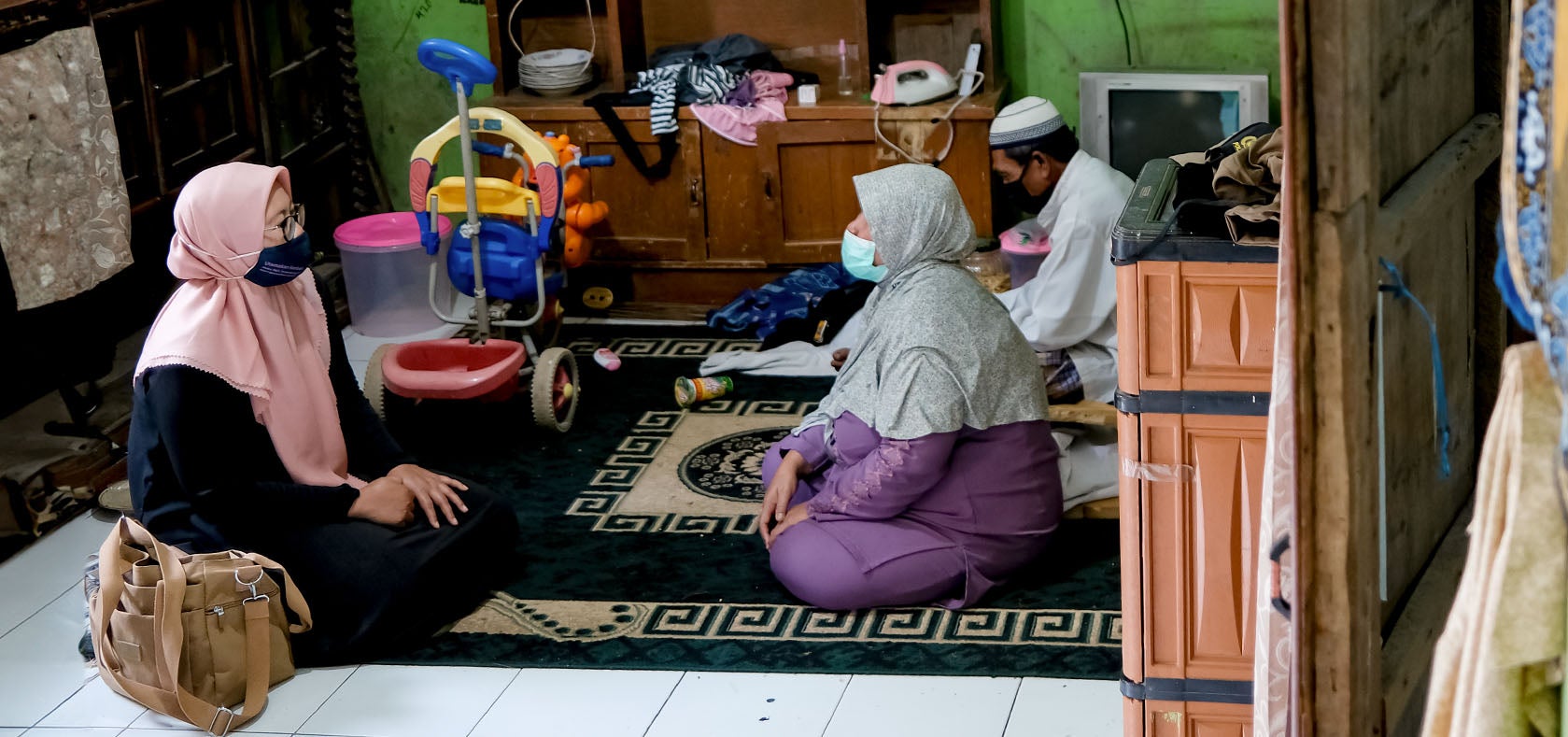A survivor of violence learns new skills and rebuilds her life
Date:
Author: Gracia Marcelin

Semarang, Indonesia – Rini ventured abroad alone to try to earn some money, hoping this would gain her more respect from a long-abusive husband. But her plan collapsed, more trials came, and she just managed to escape when one day he poured gasoline on her.
Now the woman, 35, is starting a new life, with help from a migrant worker organization and United Nations agencies including UN Women. For her privacy and safety, her real name is not used in this article.
Rini married at 20 and lived in Cilacap, a port city in Java, with her temperamental, alcoholic husband. She hired an agency that sent her to Hong Kong as a domestic worker in 2018.
"I thought, maybe if I had money, he would treat me better and not be so fierce," she recalled in an interview with UN Women this past May.
But upon arrival in Hong Kong, Rini found herself stranded in the agency’s spartan temporary lodgings for three weeks, sleeping in the hallway during the cold rainy season while waiting for her employer to return from holiday.
Then she had to go back and forth between her employer’s house and the agency, leaving her exhausted. One day, when she experienced shortness of breath, her employer sent her back to the agency. Instead of helping Rini, the agency accused her of pretending to be sick and sent her back to Cilacap.
Back home, a six-month ordeal ensued as the agency demanded compensation for not completing her contract work. It kept her national identity card, marriage certificate and passport.
Fortunately, on her sister-in-law’s advice, Rini contacted a migrant workers organization KABAR BUMI (The Association of Indonesian Migrant Workers and their Families). With KABAR BUMI’s assistance and mediation, the debt issue was resolved and Rini retrieved her personal documents.
But her trials were far from over.
Despite her suffering, Rini stayed with her husband. Rini’s own parents divorced when she was growing up and she didn't want her children to go through what had hurt her so deeply.
The breaking point came in 2022. Rini’s husband exploded when she didn’t open their shop because of rain. He poured gasoline over her. Rini ran shouting for help from neighbours, so avoided possibly being set on fire.
Rini was physically and emotionally exhausted: her weight dropped to 34 kg.
With the help of a lawyer friend, she filed for divorce. The divorce was finalized in 2022, but due to her lack of legal knowledge, Rini lost custody of her two daughters.
Rini then joined in KABAR BUMI’s activities, helping others like her.
"I want to support domestic violence victims so they know they're not alone,” she said. “I understand how manipulation within the household can leave us feeling inferior and dependent on an abusive partner.”
Rini also started a business selling traditional cotton candy.
At the end of 2023, she took a one-month training on Safe Migration and Economic Empowerment for Women Migrant Workers, organized by UN Women in collaboration with the Ministry of Women's Empowerment and Child Protection and Cilacap Indonesian Migrant Worker Protection Center.
Rini learned about gender equality, community-based parenting for children of migrant parents, family and business finances, and digital marketing to make her products more attractive to customers. A total of 224 former and prospective women migrant workers and their families in Cilacap, East Lombok, and Cirebon have taken the training.
Then on 20-22 May 2024 in Semarang, the capital of Central Java province, Rini took part in a UN Women-organized training on Integrated Criminal Justice System in Responding to Gender-Based Violence against Women Migrant Workers.
She listened as 40 law enforcement and local government officials and service providers learned how to be more sensitive to the needs of survivors of gender-based violence as well as integrate legal justice and recovery services. Rini and other women also learned about the rights and legal protections of Indonesian migrant workers.
The trainings shored up Rini’s confidence not only in her new business, but in herself.
“Don't fear being wrong when you feel oppressed,” she said. “Many women out there go through the same, yet they bravely voice their thoughts. Don't hold back just because you fear no one cares. We all stand together as women."
Both the trainings are part of the Migration Governance for Sustainable Development in Indonesia programme supported by the Migration Multi-Partner Trust Fund, a partnership among UN Women, International Organization for Migration, and United Nations Development Programme.